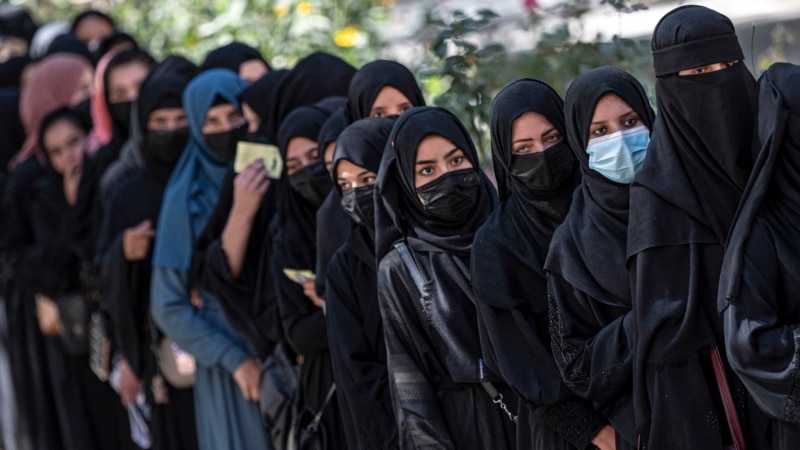
According to officials knowing the matter, the Taliban officials in Afghanistan have allegedly agreed to allow women students to get higher education in Pakistan, provided that their male parents are also given visas to go with them. .
This revelation occurred when hundreds of Afghan students took the entrance exam on Saturday to get admission to graduates, postgraduates and PhDs. Programs in Pakistani universities.
Officials said the Afghan refugees living in Pakistan went to the specified centers in Peshawar and Quetta cities to take their exams, while in Afghanistan, students are scheduled to participate online in the next few days.
Pakistan’s special envoy Mohammad Sadiq for Afghanistan announced that around 21,000 Afghan candidates, including more than 5,000 women, had submitted their applications for the upcoming summer academic session. His office reported the “important appearance” of Afghan students at the examination centers specified on Saturday, but did not provide specific numbers.
Pakistan’s Higher Education Commission is conducting an entrance examination to select 2,000 Afghan students, with one third of the selected candidates.
Pakistan expressed its “deep gratitude” to the Kabul government for allowing successful women candidates to continue their education, provided that their maharam [chaperones] Visa is granted to go with him, “a government official in Islamabad requested not to print the name due to lack of authority to publicly discuss the matter with the media.
The official said that “a visa would be issued to the patrons” to allow women students to go to study in Pakistani institutions as per Afghan Act.
The Taliban did not immediately comment on Pakistani claims that they would allow Afghan girls to get higher education in the neighboring country.
Pakistan provides a fully funded scholarship to thousands of students of its war-affected, poverty-affected neighbor. However, the program for women students was stopped in 2021 after the radical Taliban came to power and banning the education of girls after the sixth grade. They also prevent Afghan women from traveling or flying without a guardian.
The website of the Higher Education Commission states that the scholarship program is designed to promote strong relations with Afghanistan by providing high quality education to Afghan students in various fields including medical, engineering, agriculture, management and computer science.
Entrance examinations for Afghan students are taking place amid bilateral stress, which has recently increased on allegations that the anti -Pakistan armed groups are using the Afghan region to start a terrorist attack across the border. The Taliban denies claims of allowing or giving shelter to foreign terrorists threatening neighboring countries.
After assuming office last month, Sadiq visited Afghanistan, where he held extensive conversations with Taliban leaders on ways to stabilize bilateral political, security and business cooperation. He actually described his meetings with Afghan officials as meaningful but did not explain in detail.
The messenger, while addressing a gathering of Afghan and Pakistani citizen society and business representatives in Islamabad this week, said that the two countries are closely cooperating to reduce tension and increase economic relations and trade. In addition, he said that he is trying to strengthen the relationship between people to people through education and cooperation in other fields.
Since returning to power three and a half years ago, the Taliban has imposed extensive restrictions on Afghan women, stopping most of them from finding employment in public and private sector and needs to publicly cover their face.
The United Nations has termed the sanctions as “gender apartheid” and has constantly demanded them to reversed. The Taliban explains its rule to the Islamic law or Sharia and Afghan culture, rejects criticism and calls for reversal of their policies.






Leave a Reply